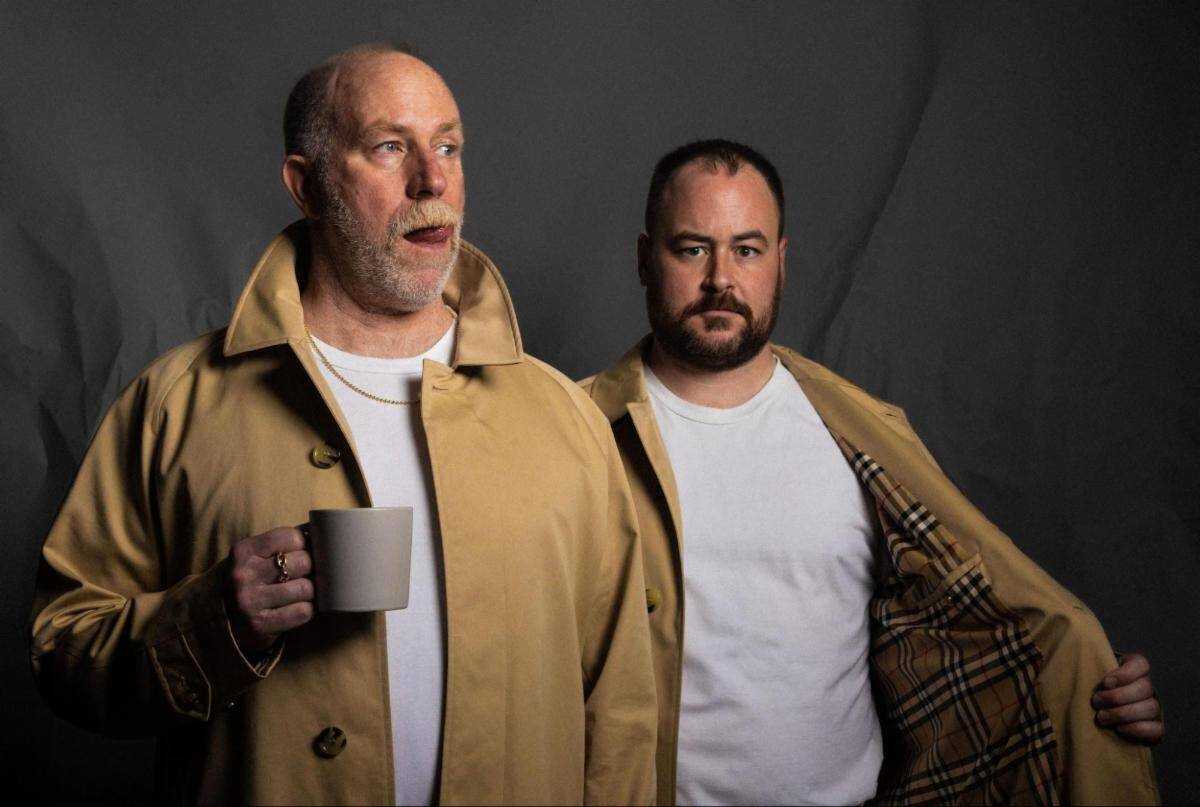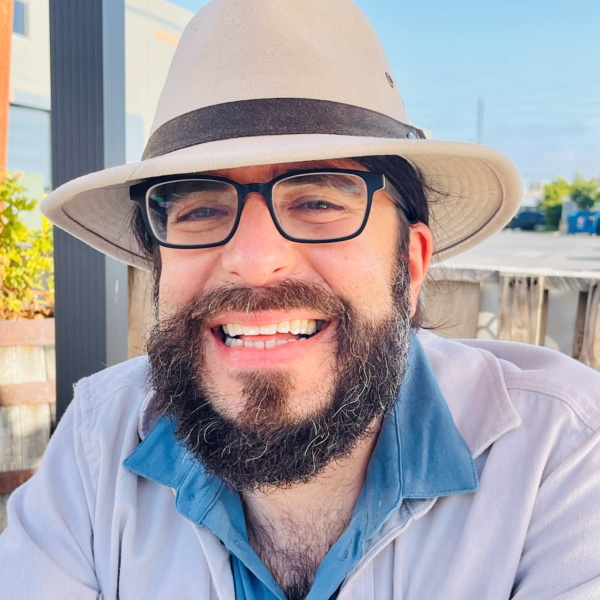Advertisement
Queer rockers Man on Man find a creative safety zone in 'Provincetown'

For Man on Man — the queer rock duo of life and musical partners Roddy Bottum and Joey Holman — Provincetown is more than just a naturally beautiful beach town where they live part-time.
“Provincetown is so special as a place for queer people, because it feels so normal to be queer,” says Holman. “So what that does to your mind, especially when you’re making music, is it allows your mind to be in a natural state of rest and safety. It gives us confidence.”
That state of creative bliss led to “Provincetown,” Man on Man’s new sophomore LP out June 16, which is named after the outermost Cape Cod location where they wrote and recorded the project last summer.
One of the songs, “Showgirls,” was inspired by bawdy playwright Ryan Landry’s weekly P-Town talent show and revue. “That show sort of sums up Provincetown’s weird, do-it-yourself, real local kind of vibe. It has such a fun spirit and just encapsulates what the town is about,” says Bottum, who first came to fame as the keyboardist for eclectic rockers Faith No More before founding Imperial Teen, a long-running indie outfit that has also centered a queer identity. Last summer, another storied alt-rocker frequently found on the Cape, Dinosaur Jr.’s J Mascis, had Bottum and Holman join him for a cover of Neil Young’s “Rockin’ in the Free World.” The duo then asked Mascis to come to their P-Town home studio the next day where they recorded the track “Hush,” which closes the LP.
As Holman points out, Provincetown has for decades been home to painters, musicians, writers and other artists. “Besides being a stunning part of our country, from a social perspective, there’s a lot of history there that feeds into your confidence when you’re writing music. That it’s a queer town makes it easier to write about what we wanted to write.”
What Man on Man wants to write are often songs that directly address contemporary queer topics ranging from celebrations of sex (“Gloryhole”) to musings about the past and future of the community. In “Kids,” the duo suggest that their fellow middle-aged gays could do more to understand and support the LGBTQ+ youth who are frequently the target of legislation — even if older gays don’t always relate to the gender identity issues that are now front and center. “Can I say: Take a minute to get with the pronouns/ Take a minute to listen to kids,” the lyrics urge.
“Older or middle generation people have a tendency to stick to themselves, and we can develop a tunnel vision where we’re just proud of what we’ve done and provided,” cautions Bottum. “But it seems like the world is changing and now the focus is not so much the pride of my generation, but the importance of focusing on the generation that is coming up.”
Another track, “Piggy,” looks at the world of gay dating and hook-up apps like Grindr and Scruff, which are infamous for their plethora of faceless profiles.
“We had this funny realization of being remarkably outspoken about our sexuality, but then juxtaposing that against people who are able to take advantage of people’s overt sexuality and use their lifestyle to have a sexual outlet, but don’t do the work of being out themselves. This notion that ‘I’m not going to show my face, I’m super discreet, but you should hook up with me,’” says Holman. “It also speaks to the bigger issue of people punching the clock into queerness when it’s convenient, and punching out when they can leave it behind. Roddy wrote the chorus of ‘You gotta first love you if you want to f--- me.’ Self-love in a real way is sexy as hell, and a part of that is showing your face.”
Bottum says most P-Town clubs focus on programming “comedy or drag queens so there’s not a place that is a loud rock venue, but we’ve made it work.” The group appeared at last fall’s Washashore Festival and will have a club date at the Red Room on July 9 during P-Town’s Bear Week.
Outside of P-Town, the band has found that it best works playing to open-minded rock audiences. Holman recalls that when the duo started, they imagined becoming a staple at Pride events. “But we’ve played enough to learn that in those settings people want to see fun things, like drag. I mean, we’re fun, but when we play in front of audiences where there’s no event happening, and people want to hear music, we always do well.”
“I don’t think anyone is bummed we’re queer,” says Holman of rock crowds. “It has been cool to find queer people who are into rock music, and Roddy is [one of the people] responsible for creating a taste for that. A lot of people that come to our shows love Roddy’s bands and they’re queer and that’s awesome. I wish I had that when I was younger.”
The video of “Showgirls” depicts a queer mosh pit, something that still largely remains a fantasy, but maybe not forever. “Faith No More did draw this super aggressive demographic of people that gravitate toward hard rock,” says Bottum, “so I feel that we are pushing a boundary in breaking through that and setting the precedent that it’s not just straight angry boys who can get into heavy music, and that’s what the video is about: opening that up and challenging that notion.”


